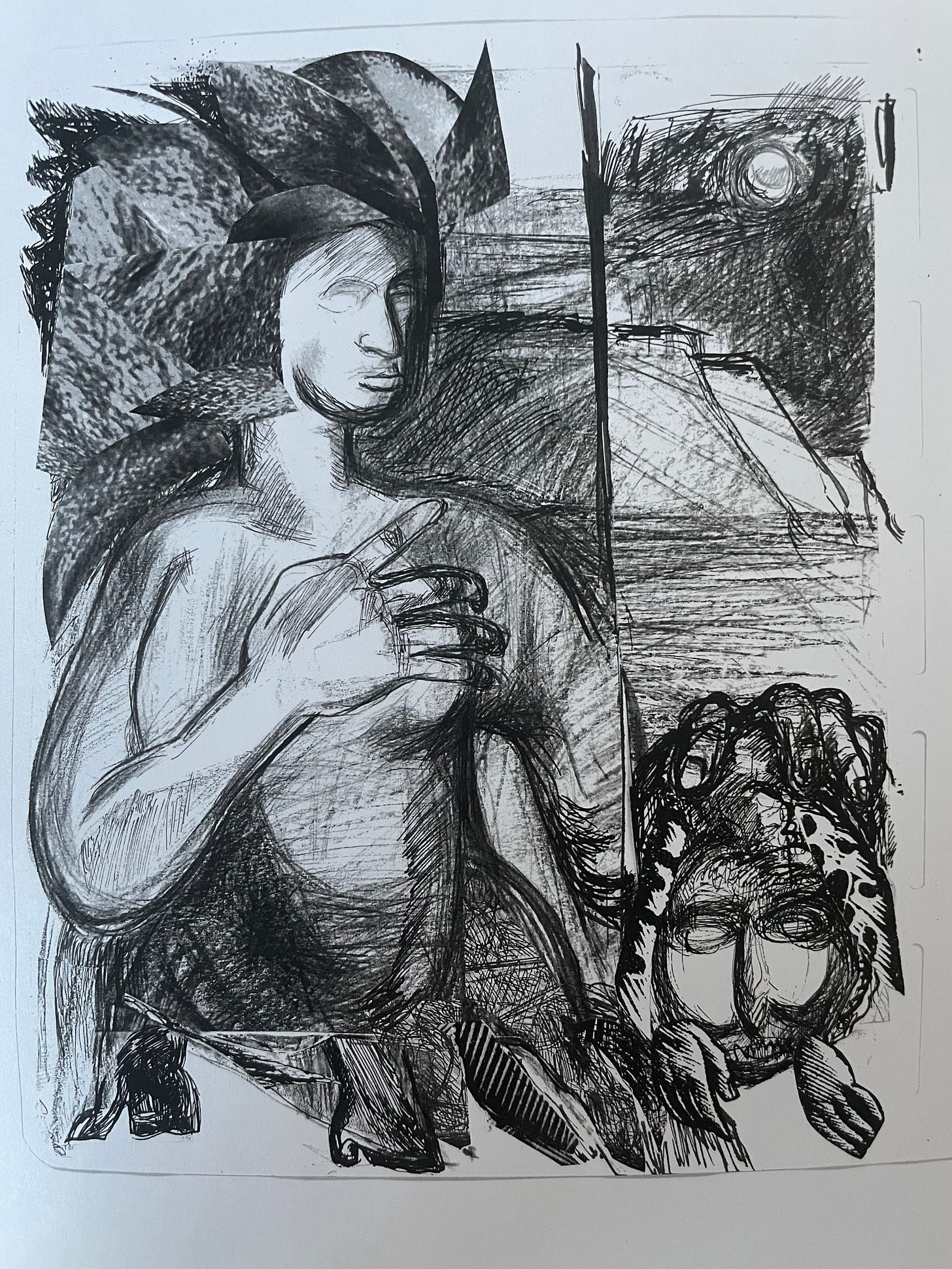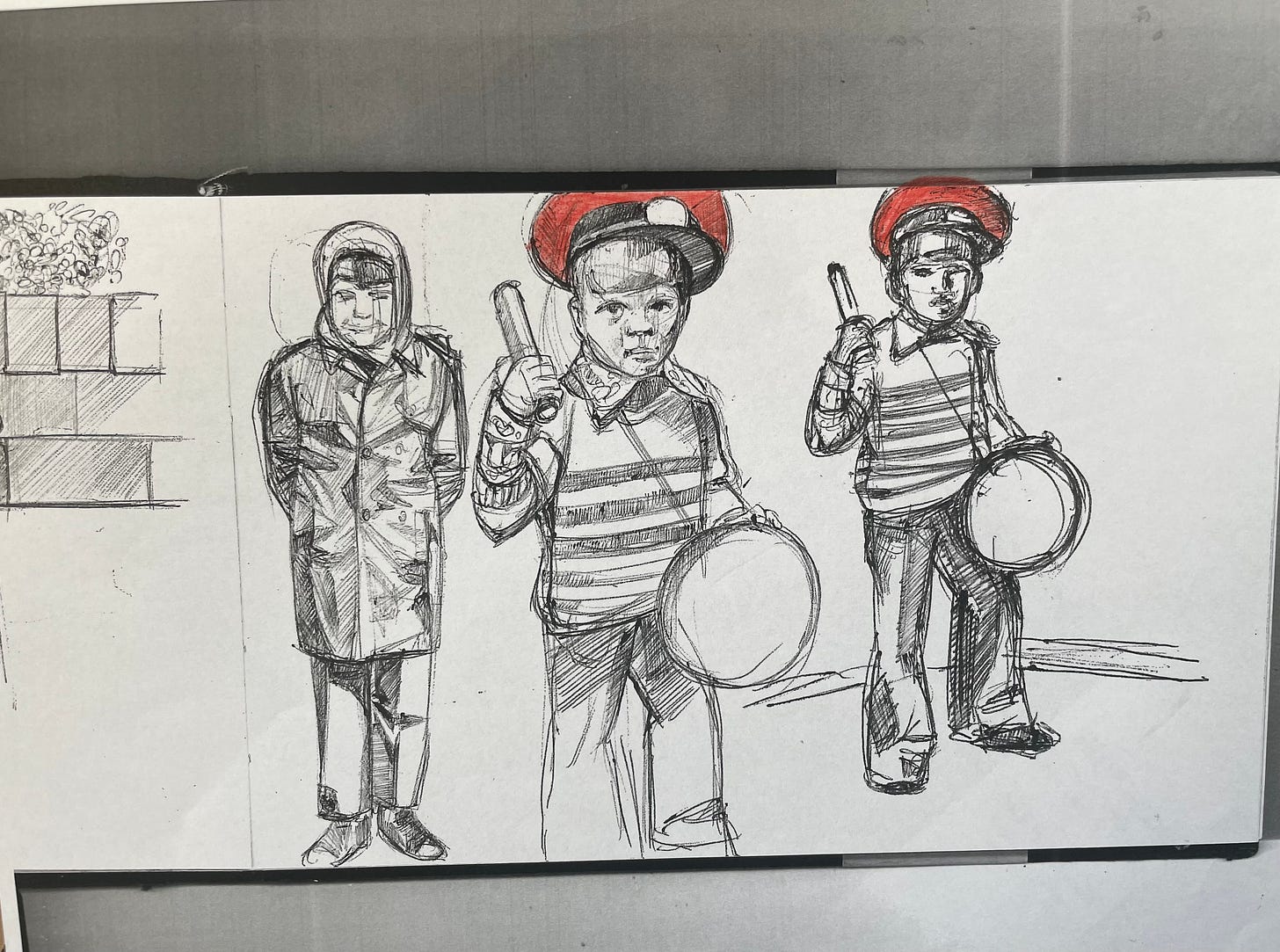We know the PINS War is between the Protestant new order in the North and the Catholic old order in the South and is played out in a fictional eighteenth-century. In future instalments of PINS we will return to how to populate your units, their regimental insignia and dress, their morale, and so on.
But if you don’t like war - and who does - there are a number of potential escape routes from the Garden where The War takes place. One is to dig under the trellis between the front garden and backyard. This can be done surreptitiously and fairly successfully. The new shed gives good cover, as do the ancient laburnum tree and nextdoor’s hydrangea bushes. You can put the dug soil in a coal sack. Remember not to put the yellow flowers from the laburnum in your mouth as it’s POISON and your mam will go mad. Same with the coal. Another way out is to vault onto the neighbours’ brick wall using the coal bunker and slide slowly down the other side. Watch out for the big plant pots and the hedgehogs.
Other escape routes from war are up the backs that run behind every house on this stretch of the road. This narrow, long-running strip of land is truly another world and will end up in your dreams in some form or another for five decades. There are ancient ferns sprouting everywhere, old bricks from the works, old sacks of cement, metal bins with sharp edges on their round lids, rotting compost heaps, overgrown blackberry and gooseberry bushes, dead birds, stolen paving flags from the roads and wooden staves of various lengths. At the back of each house there is a wooden door with a sharp pointed top. As it’s the mid-1970s no one has put up any broken glass on the top of the wall or doors; that development comes in the 1980s. But you know that one of the neighbours has a kukri, he showed you, he brought it home from a war, and he says to pull it out of its sheaf means he’ll have to draw blood. These backs are not like the backs of your pals’ houses as they are more standard, cobblestone backs with a gutter in the middle. Their backs are the standard ones, found behind the brick and stone terraces that form the majority of the housing stock in this northern town.
Note! You can creep through other garden worlds but if you get caught, you must fein contrition and Christian willingness to do better, especially if you are collared by Nutty Norman.
You can escape from The War into other, more imaginary worlds and try to collect all of the many print variations of Finland’s long running Woodcutter stamp design (1930-1962), drawn by Akseli Gallen-Kallela. Look at the kinds of words you can use to escape with! I: Original die. Thin, vertical inner frame line below to the left of the value circle. Five frame-types. II: Re-engraving. Thick, vertical inner frame line below to the left of the value circle. One frame-type.
You can talk to the very thin longhaired student who comes to talk to your mother about the French language. He folds himself up in front of the small electric fire in the back room and says in an educated voice: “I don’t like wars”. Dad says he likes the Russians. He is the only person from the south of England you’ve met outside of the people who may have talked to you in passing on the two holidays you’ve had down there: once in Cromer, Norfolk, the other in Lyme Regis, Dorset.
You can also make incantations that prevent The War, especially like the one you have seen on Friday night when Monkey comes on the telly. These can be done in front of the terrifying picture of Bella Coola in the Larousse Encyclopedia of Mythology (1959, Introduction by Robert Graves) which will appear if you’ve done bad. Bella can only be assuaged if you do the incantation in the old wardrobe your aunt Marion left your parents. That smells of the past.
(Subnote: it is vital to remember that the past isn’t talked about much in the 1970s and is seen as something best left alone. And - roll your eyes and mouth this part - Aunt Marion stuck pins into the eyes of the one surviving snapshot of her long dead husband.)
Another neighbour who is from the past you shouldn’t talk about gave you a bible he was given in 1916, when he was in service in another war. God, it seems, is the main person around so you can make incantations with this bible (a perfect size to be tucked into a service tunic) and sound official and no-one will tell you off.
One tip for those who wish to pursue The War: learn the Arc of Elevation.
A simple plastic tennis racket, (available at the Corner Shop, the one down near the cricket club and backing onto the generator), can be loaded with stones. Its shaft is then placed across the back of a brick. Quickly chopping the hand down against the butt will send the stones flying, to do damage to enemy units.
We know the arc of elevation is important in PINS, we have notes and drawings on the back of A4 paper, headed ‘City Technical Services Department, Civic Centre, Chorley Road, Swinton, M27 2BW’.
The notes here get quite enthusiastic:
“Great Rule for Firing! : --
Estimate distance and write it down - then put measure stick end on that distance! - And place burst circle on other device.
Can be used for cannon and ships.
----- Great!
______________”
An accompanying post to this Rule, with relevant illustrations, can be found in the Museum of Photocopies.






